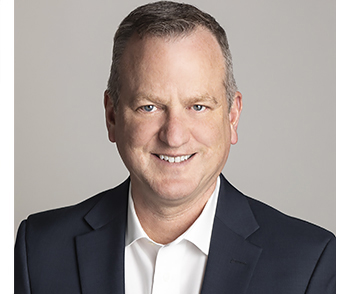EVIDENCE BASED INSIGHT
Organizing Information Systems in Support of Global Diversity
September 21, 2020 • 6 min read
CARLO BARBIERI, PhD • TIMOTHY MCNAMARA, MD, MPH
As Fresenius Medical Care develops IT platforms, one of the biggest challenges is to balance the quest for global solutions with the need to accommodate diverse environments around the world. Differing regulatory requirements, infrastructure capabilities, dietary habits, and cultural norms are just some of the many factors that the company is uniquely positioned to address. EuCliD and theHub are two Fresenius Medical Care portals that are seeing widespread adoption because they combine sophisticated data architecture with individualized and connected patient care.
Kidney disease is a global threat that challenges the health and well-being of millions, stresses the capabilities of health systems, and burdens economies around the world. As a vertically integrated global healthcare company focused on kidney disease, Fresenius Medical Care is uniquely positioned to leverage its experience and global network of caregivers, data scientists, thought leaders, and innovators to deliver best practices, innovations, and insights for the effective treatment of kidney disease.
While a global approach to data analysis and dissemination of evidence-based approaches is foundational for Fresenius Medical Care, adaptation to the diverse needs of specific locations, cultures, and countries is critical for success.
Fresenius Medical Care operates in incredibly diverse environments. Corporate staff and clinical partners provide care in 38 languages in over 4,000 clinics in North America, Europe, Latin America, Asia-Pacific, and Africa, delivering dialysis treatment to over 348,000 patients. Personalized care is extended to patients living with kidney disease from the Arctic, to the Tropics, to remote reaches of the Australian Outback; from national urban capitals, to rural towns, and even to mobile dialysis clinics; and from locations with the most modern infrastructure to those that have been affected by natural disaster.
For example, diet plays a key role in the management of kidney disease and associated conditions such as hypertension and diabetes mellitus. Universally, people with kidney disease benefit from dietary counseling, but dietary preferences and customs are very localized and individual. How can a global company provide IT systems that support local, culturally appropriate, professional nutritional patient-care interventions? A global IT solution must enable local adaptation and flexibility, yet still support evidence-based clinical decisions, robust data capture, and national and international advanced data analytics. The successful interplay between a global approach to population data management and locally adapted systems is a particular strength of Fresenius Medical Care.
Dietary diversity and the need for global systems that support local adaptation are far from the only areas where flexibility is needed. Fresenius Medical Care is acutely aware of diversity along numerous clinical and social axes as well as the diversity of clinical, regulatory, and economic environments. To address the challenges, Fresenius Medical Care has deployed a diverse range of clinical systems.
Certain principles and system characteristics are common in the approach to data gathering across the globe, including:
- Data governance
- Data warehousing
- Analytics
- Research enablement
- Patient engagement
- Connected health
Data governance plays a key role in setting the agenda for IT initiatives and provides the foundational policy framework for system and application development. It structures the company’s approach to data storage and warehousing that, in turn, facilitates worldwide analytic and research efforts.
With a commitment to personalized and individualized care delivery, Fresenius Medical Care has made patient engagement a central system aim and, as a consequence, has invested substantially in developing patient portals and connected health applications designed to link clinicians and staff to patients. As the prevalence of home-based therapies grows, the ability to stay connected to patients (via remote monitoring, telehealth, and realtime communication) becomes increasingly critical.
Behind all of these efforts is the motivation to enhance productivity, improve operational excellence, and support new avenues of care delivery to meet individual patient preferences.
GEOMETRIC GROWTH IN SYSTEM ADOPTION:
THE EuCliD EXPERIENCE
In November 2019, Fresenius Medical Care reached the milestone of 100,000 active patients managed in EuCliD, its information system at clinics in Europe, the Middle East, Africa, Latin America, and Asia-Pacific. Roughly 18,000 nurses and physicians, located in more than 950 clinics in 41 countries, employ EuCliD as an essential tool to support patient care on a daily basis.
EuCliD development began in 2004 with a challenging mission to meet two different data needs: local, for everyday use by the dialysis clinical staff; and global, a centralized data repository for epidemiological and quality assurance information in multiple countries. As a result, EuCliD provides a single data model for users across four continents that allows data consolidation, analysis, and benchmarking. Online, real-time monitoring of patient outcomes is a direct consequence of this architecture.
In the regions it serves, EuCliD is the data backbone of Fresenius Medical Care’s Continuous Quality Improvement initiatives. It creates the opportunity to measure and analyze key clinical quality indicators. Recently, EuCliD has been enhanced to support clinic-related processes like water treatment, stock and inventory management, drug serialization, and workforce management (including staff scheduling integrated with human resource systems). Real-time data collection in EuCliD supports epidemiological analysis and peer-reviewed published research.
EuCliD identifies potential patient risks, critical treatment data, and trends for improved patient care
The milestone of 100,000 active patients is an important achievement, but it is not the end of the journey. On the contrary, it is a stimulus for the continuous improvement of EuCliD to enable a better user experience and an opportunity to leverage this unique international clinical system for new innovations in areas like artificial intelligence, anemia management, and patient risk stratifi cation, in order to support healthcare professionals and patients.
A NEW PLATFORM FOR CONNECTED HEALTH:
THE NORTH AMERICAN EXPERIENCE
In 2019, Fresenius Medical Care North America (FMCNA) launched a new IT platform to serve providers, clinicians, patients, and families. This platform, called “theHub,” has been adapted to meet the unique regulatory, documentation, and billing requirements of US nephrology and dialysis practice.
The first phase of theHub targets three constituencies and includes:
- CareTeamHub: connected care application for home therapy clinicians
- ProviderHub: mobile-enabled rounding tool for dialysis provider partners
- PatientHub: integrated patient portal
Together, these applications provide a unifi ed system for care coordination, based on Fresenius Medical Care’s global approach to data management.
CareTeamHub
Following a very successful pilot in the spring of 2019, CareTeamHub rolled out system-wide in the summer, linking home therapies staff with patients to provide remote monitoring and bidirectional communication.
With CareTeamHub, home therapy nurses can review data automatically retrieved from peritoneal dialysis cyclers and home hemodialysis machines as well as weights, blood pressures, and other data gathered electronically from patients at home. In addition, the care team also receives alerts for patients with any unexpected variations, alarms, or home dialysis issues.
CareTeamHub gives nurses a comprehensive dashboard for each patient and allows them to respond proactively to issues that may occur during or after treatment (rather than waiting for end-of the- month meetings with patients).
ProviderHub
In September 2019, ProviderHub launched system-wide access to FMCNA provider partners (nephrologists and nurse practitioners) as a platform-agnostic rounding and documentation tool. Although ProviderHub can be accessed by providers through any desktop browser, the greatest adoption has been on mobile platforms—specifi cally on iOS and Android devices. Providers can use native apps on iPads, iPhones, Android phones, and other devices to access information about dialysis treatments as well as labs, medications, notes, orders, patient photos, and more. They can write basic and comprehensive notes and sign orders, all on the go. And, of course, ProviderHub off ers real-time connectivity with FMCNA back-end electronic health records.
PatientHub
PatientHub, Fresenius Kidney Care’s (FKC) patient portal, has long provided a mechanism for patients to review, track, and enter their own health data. But it has recently been enhanced to allow bidirectional communication with FKC nursing staff (through CareTeamHub) and seamless tracking of patient-supplied data (like weights and blood pressures taken at home).
CareTeamHub provides situational awareness of patient status and treatment data captured by home care devices, enabling home therapy nurses to document interventions in a timely way
Outcomes of theHub
The implementation of theHub was incredibly fast and successful. For example, in just two months, nearly 1,000 new users joined ProviderHub in North America, generating more than 36,000 notes in the month of October 2019 alone. FMCNA also found that compliance with its internal order-signing procedures was dramatically improved. Defi ciencies in order-signing are approximately three times more common among providers who do not use ProviderHub compared to those who do. In addition, FMCNA observed a 56 percent drop in order-signing defi ciencies for ProviderHub users before and after implementation of ProviderHub compared to just a 17 percent drop in defi ciencies for non-ProviderHub users. This change suggests the implementation of ProviderHub is directly improving the workfl ow for providers.
Regarding CareTeamHub, the rollout was accompanied by a surge of positive comments from FKC home therapy nursing staff who are now able to track the progress of home patients on a daily basis. For example, fl owsheet data from patients and home cyclers now fl ow directly to nursing staff so that exceptions and issues can be detected daily (rather than at end-of-the-month offi ce visits).
Kidney disease knows no national boundaries. A global approach to health data and population management is critical for success. But equally important are systems with fl exibility and adaptability that reflect the real-world needs and requirements of diverse populations and regions as well as local legal requirements. Fresenius Medical Care has taken that insight to heart with the successful deployment of global data governance, data warehousing, analytics, research, and patient engagement in conjunction with regional adaptations to refl ect enormous patient diversity. These local adaptations, like EuCliD and theHub, are having measurable and exciting positive eff ects on the care provided to patients around the world.

